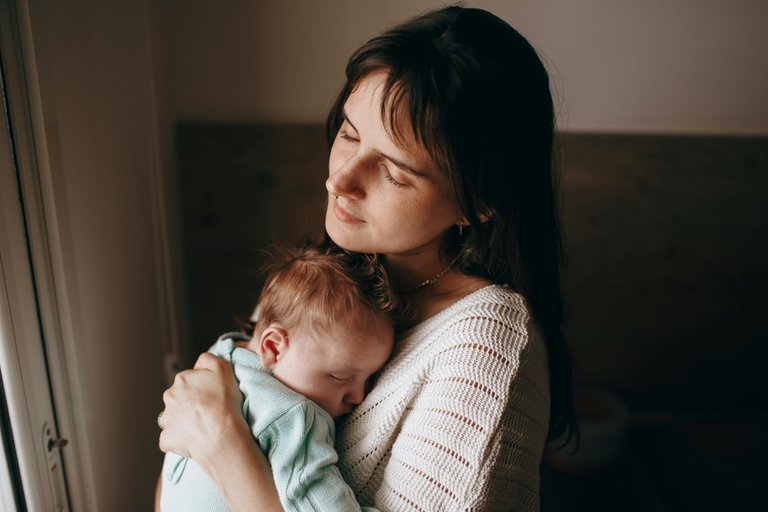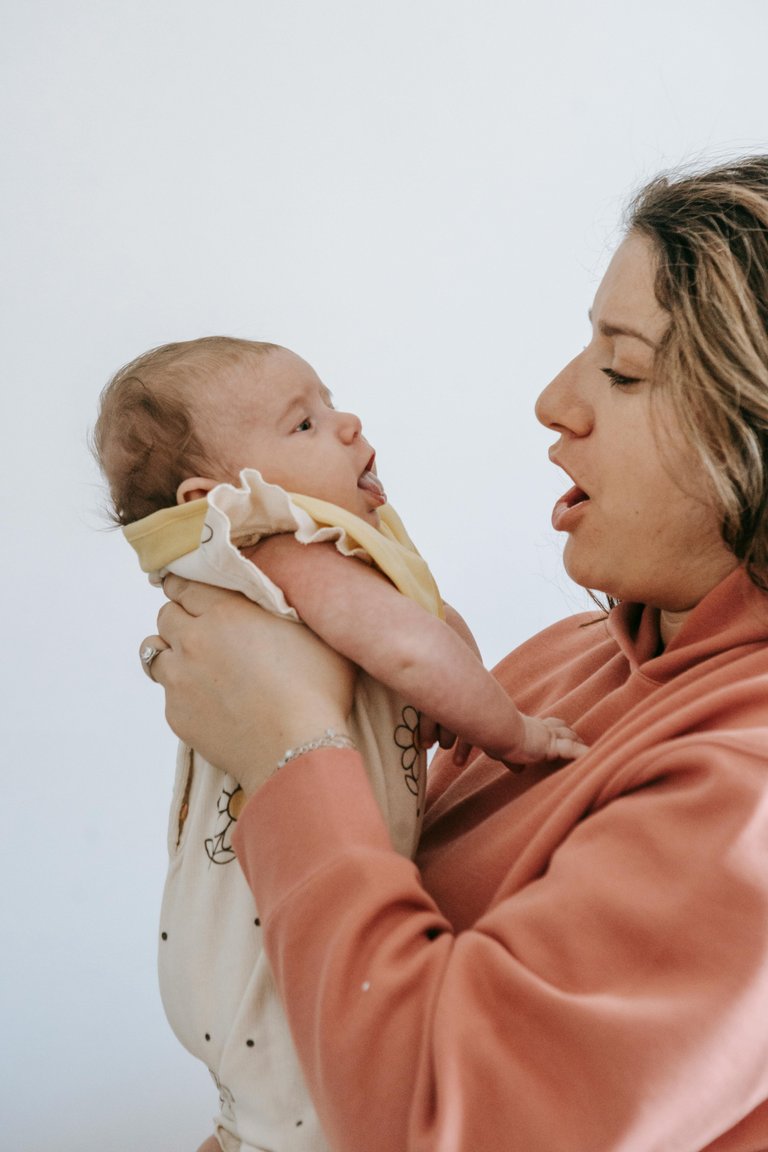More than Baby Blues: Understanding Postpartum Depression
I took my baby for immunization one day and I sat close to a woman who was telling her husband of the urgent need for her to see a doctor, but the husband said, "Grandma said we should focus on the child first you can always see the doctor later", before blaming the grandmother too much, remember they weren't a thing like postpartum depression in their days, a woman who got pregnant will in most cases have a child without problems and go ahead to take care of the child on her own.

pexels.com
I couldn't hold back, I had to intervene and speak with the husband to please allow her to see a doctor if she needs to do that, reminding him that his wife is as much as important as the child and how I am sure he would not want anything to go wrong with her. The wife smiled at me as she nodded in affirmation. Postpartum depression is now popular, but not everyone can tell of the signs, or how they should quickly help their loved ones seek required help when these symptoms come up.
Gradually and thankfully so, we are not so much in the era of women hurting themselves or the baby because no one understands them, that has drastically reduced. Postpartum depression after a woman has a baby has been researched to affect up to 15% of women, after having a baby, it is normal to feel worried or have doubt, but if it gets to the point of having, serious mood swings, feeling extremely lonely or sad, or having frequent crying spells, then postpartum depression is the case.

pexels.com
Even if, the postpartum disorder is what is commonly known, there are other types or classifications of the condition. There are three different types of postpartum mood disorders, we have;
Postpartum blues/baby blues which makes the affected woman cry consistently for no good reason, anxiety and sadness also creep in, but this condition most likely subsides after a week or two even without any type of treatment, the best way to handle this is to have a good support system from friends, family, and most importantly, partner.
Postpartum depression is a more serious condition compared with baby blues, it comes with frequent crying episodes, fatigue, irritability, anxiety, feelings of guilt, and inability to care for self and child. Once a mother experiences postpartum depression, the chances of experiencing another one increase with each pregnancy, according to a research report. Postpartum depression can last for up to a year, treatment with antidepressants and psychotherapy have proven effective over time.
Postpartum psychosis is the third type, which is a more severe type and requires emergency medical care. The condition is rare and has been found to only affect 1 in 1000 women, the symptoms quickly begin after delivery and become serious lasting from weeks to months. The woman involved will feel confused, and hopeless, get agitated, have a feeling of shame, insomnia, delusions or hallucinations, rapid speech, hyperactivity, and paranoia.

pexels.com
Ignoring postpartum depression is dangerous, it creates a situation of suicide and infanticide. Hormonal imbalance during pregnancy has been recorded to be one of the triggers of postpartum disorders, also, low levels of oxytocin in mothers who have high psycho-social stress are related to postpartum depression. Trauma and other forms of early life adversity can have a strong effect on the oxytocin level in mothers, therefore leading to postpartum depression.
With modern medicine, exposure has been made to see the effect of sex steroids on the brain, progestin, estradiol, and testosterone, and the ways to benefit from using the hormones as an improved and new form of treatment, even in the case of neuropsychiatric disorders. This is the reason why hormonal therapy has continued to play a significant role in the management of postpartum depression.

pexels.com
The effective combination of a reduced thyroid hormone with enhanced estradiol and progesterone actively determines neuroprotection in cases of postpartum depression. This discovery will not only provide effective treatment but will also help with the prevention of postpartum depression in years to come.
Before rounding up, I believe it is important that I touch on these possible triggers of postpartum depression that we can easily avoid falling victim to. Sleep deprivation in a new mum, not having enough time to relax, recover, and heal emotional distress, and feeling overwhelmed by the needs of the newborn. New mums who feel different or uneasy should try to speak with someone who will understand, they must learn to show kindness to themselves, and try to take care of themselves as much as they do with their baby, making time for some physical activities helps a lot too.
For Further Studies
https://psychcentral.com/depression/what-causes-postpartum-depression#self-care-and-prevention-tips
https://www.nhs.uk/mental-health/conditions/post-natal-depression/overview/
https://my.clevelandclinic.org/health/diseases/9312-postpartum-depression
https://womensmentalhealth.org/posts/estrogen-posptartum-depression/
https://pmc.ncbi.nlm.nih.gov/articles/PMC4363269/
https://pmc.ncbi.nlm.nih.gov/articles/PMC6992410/

Hi, I am Tobi, a writer, speaker, relationship blogger, and lover of good music. I love making friends and learning from people. If you want to hear me speak about relationships and general life issues, you can find my YouTube channel, where you can watch any episode for free. Please do not forget to subscribe, friends. I sincerely appreciate every love I get from here. Kindly do well to keep them coming.
Congratulations @oluwatobiloba! You have completed the following achievement on the Hive blockchain And have been rewarded with New badge(s)
Your next target is to reach 27000 upvotes.
You can view your badges on your board and compare yourself to others in the Ranking
If you no longer want to receive notifications, reply to this comment with the word
STOPCheck out our last posts:
Thanks for your contribution to the STEMsocial community. Feel free to join us on discord to get to know the rest of us!
Please consider delegating to the @stemsocial account (85% of the curation rewards are returned).
Thanks for including @stemsocial as a beneficiary of this post and your support for promoting science and education on Hive.